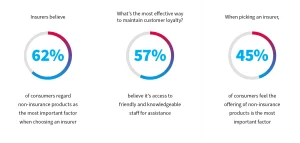The COVID-19 pandemic has highlighted the critical role of health insurance in safeguarding individual and public health. As the world grappled with an unprecedented health crisis, the necessity for comprehensive health coverage became more apparent than ever. This article explores the importance of health insurance during a pandemic, examining its impact on individuals, families, and healthcare systems.
 1. Access to Essential Healthcare Services
1. Access to Essential Healthcare Services
a. Timely Medical Care
Health insurance plays a vital role in ensuring access to timely medical care. During a pandemic, individuals may require immediate attention for COVID-19 symptoms, as well as routine healthcare services that may have been delayed due to overwhelming healthcare systems. Health insurance helps cover the costs of doctor visits, diagnostic tests, and hospitalizations, thereby facilitating timely interventions that can save lives.
b. Preventive Services
Preventive care is crucial during a pandemic. Regular check-ups, vaccinations, and screenings can help identify health issues early on. Many health insurance plans cover preventive services at no cost, encouraging individuals to seek necessary care without the burden of out-of-pocket expenses. This proactive approach not only improves individual health outcomes but also reduces the overall strain on healthcare systems.
2. Financial Protection Against High Medical Costs
a. Mitigating Financial Burden
The financial implications of a pandemic can be devastating, particularly for those requiring extensive medical care. Health insurance mitigates the financial burden associated with hospitalizations, treatments, and medications. Without insurance, individuals may face exorbitant bills that can lead to bankruptcy or significant debt. Health insurance provides a safety net, ensuring that individuals can receive necessary medical care without the fear of crippling financial consequences.
b. Coverage for Critical Care
Severe cases of COVID-19 often require intensive care, which can be incredibly costly. Health insurance ensures that individuals have access to critical care services, including ventilators, specialized treatments, and hospital stays. The high costs associated with such care can be overwhelming, but insurance helps to alleviate these financial pressures, allowing individuals to focus on recovery rather than financial worries.
3. Encouraging Public Health Measures
a. Vaccination Coverage
During a pandemic, vaccination becomes a crucial public health measure. Health insurance typically covers the costs of vaccines, making them accessible to a broader population. This encourages individuals to get vaccinated, contributing to herd immunity and reducing the spread of the virus. The more individuals who are vaccinated, the more effectively communities can control the pandemic.
b. Promoting Health Education
Health insurance providers often offer resources and support for health education. During a pandemic, this can include information about symptoms, prevention strategies, and the importance of testing and vaccination. By promoting awareness and education, health insurance plays a key role in empowering individuals to make informed decisions about their health.
4. Supporting Mental Health and Well-being
a. Coverage for Mental Health Services
The pandemic has had a profound impact on mental health, with many individuals experiencing increased anxiety, depression, and stress. Health insurance often includes coverage for mental health services, providing access to therapy, counseling, and support groups. This access is vital for helping individuals cope with the emotional toll of the pandemic, ensuring that mental health needs are addressed alongside physical health concerns.
b. Reducing Stigma Around Seeking Help
Having health insurance can also reduce the stigma associated with seeking mental health care. When coverage is available, individuals may feel more comfortable reaching out for help, knowing that they can access services without incurring significant costs. This shift in perspective is essential for promoting overall well-being during challenging times.
5. Strengthening Healthcare Systems
a. Supporting Healthcare Providers
Health insurance plays a crucial role in supporting healthcare providers and institutions. By ensuring that individuals have coverage, insurance helps to stabilize healthcare systems financially. This support is especially important during a pandemic, as hospitals and clinics face increased patient loads and financial pressures. A robust health insurance system contributes to the sustainability of healthcare services, allowing providers to continue delivering care to those in need.
b. Facilitating Research and Innovation
Health insurance also supports research and innovation in healthcare. With a larger pool of insured individuals, researchers can gather data more effectively and explore new treatments and vaccines. During a pandemic, this research is vital for developing effective responses to the virus and improving overall public health outcomes.
6. Advocacy for Universal Health Coverage
a. Addressing Inequities in Healthcare Access
The pandemic has exposed significant inequities in healthcare access, with marginalized communities often facing the greatest challenges. Advocating for health insurance as a fundamental right is essential for addressing these disparities. Universal health coverage can ensure that everyone, regardless of socioeconomic status, has access to necessary medical care during a pandemic and beyond.
b. Building Resilient Healthcare Systems
Investing in health insurance and advocating for comprehensive coverage helps build resilient healthcare systems that can respond effectively to future health crises. By ensuring that all individuals have access to necessary services, societies can better prepare for and mitigate the impacts of pandemics and other public health emergencies.
 Conclusion
Conclusion
The importance of health insurance during a pandemic cannot be overstated. It serves as a critical safeguard for individuals, providing access to essential healthcare services, protecting against financial burdens, and supporting public health measures. Additionally, health insurance promotes mental well-being, strengthens healthcare systems, and advocates for equitable access to care.
As we move forward in a post-pandemic world, the lessons learned about the significance of health insurance should inspire continued advocacy for comprehensive coverage. Ensuring that all individuals have access to health insurance is not only a matter of personal health but also a public health imperative. By prioritizing health insurance, we can build a healthier, more resilient society that is better equipped to face future challenges.


